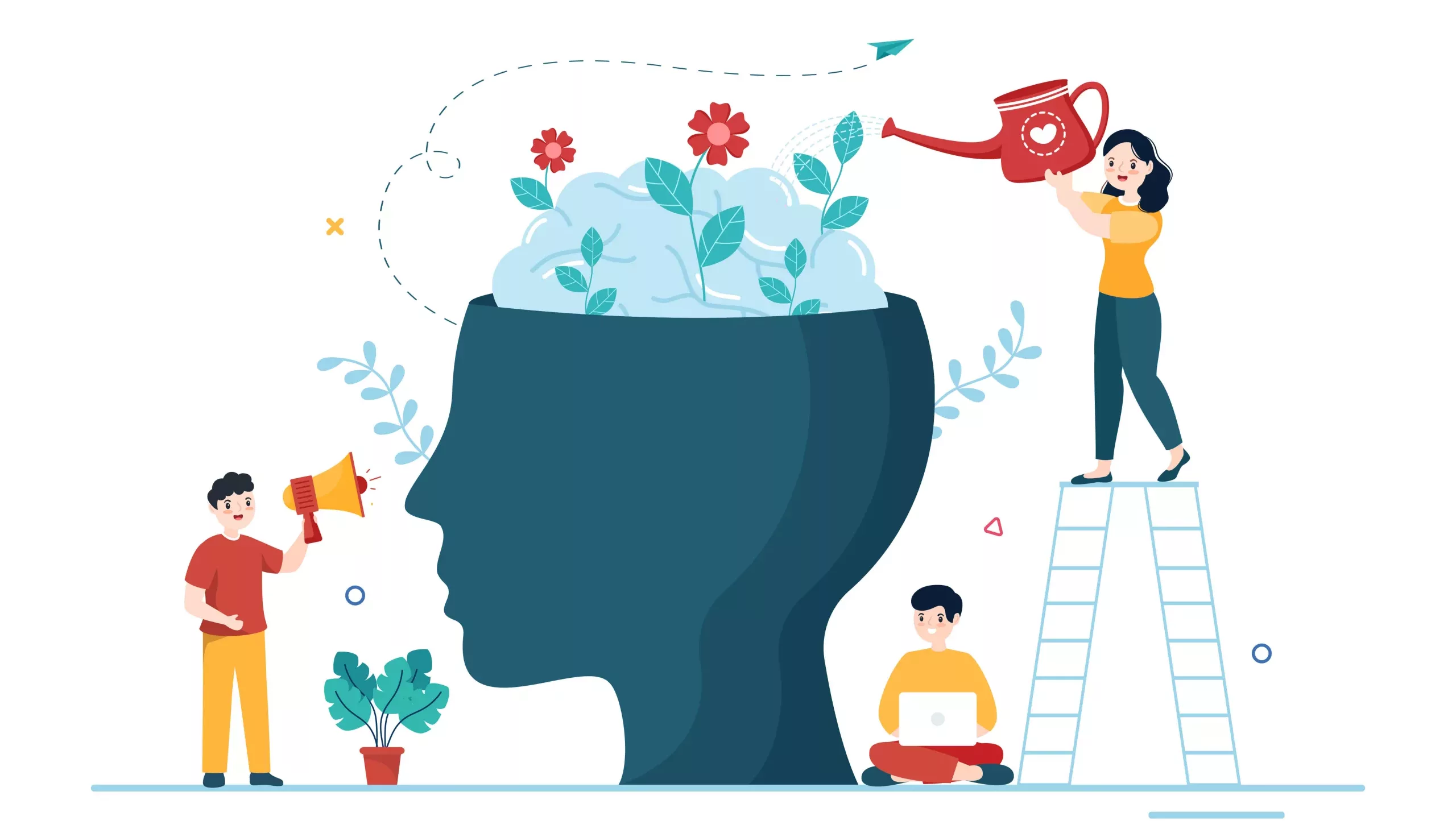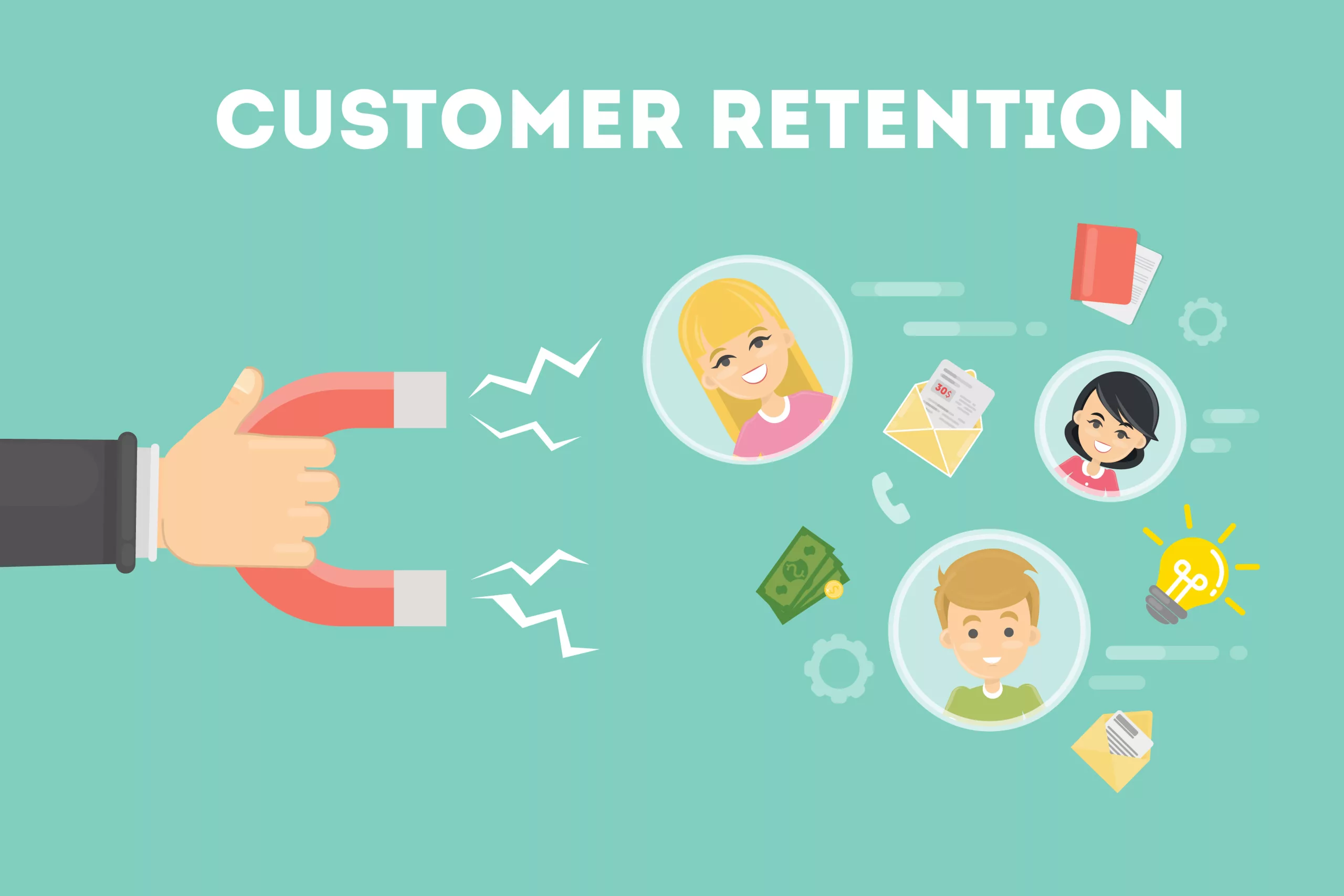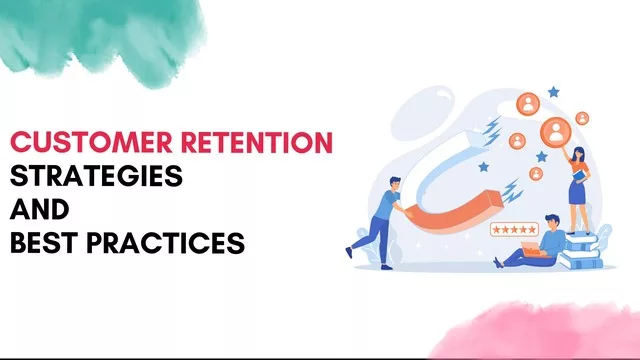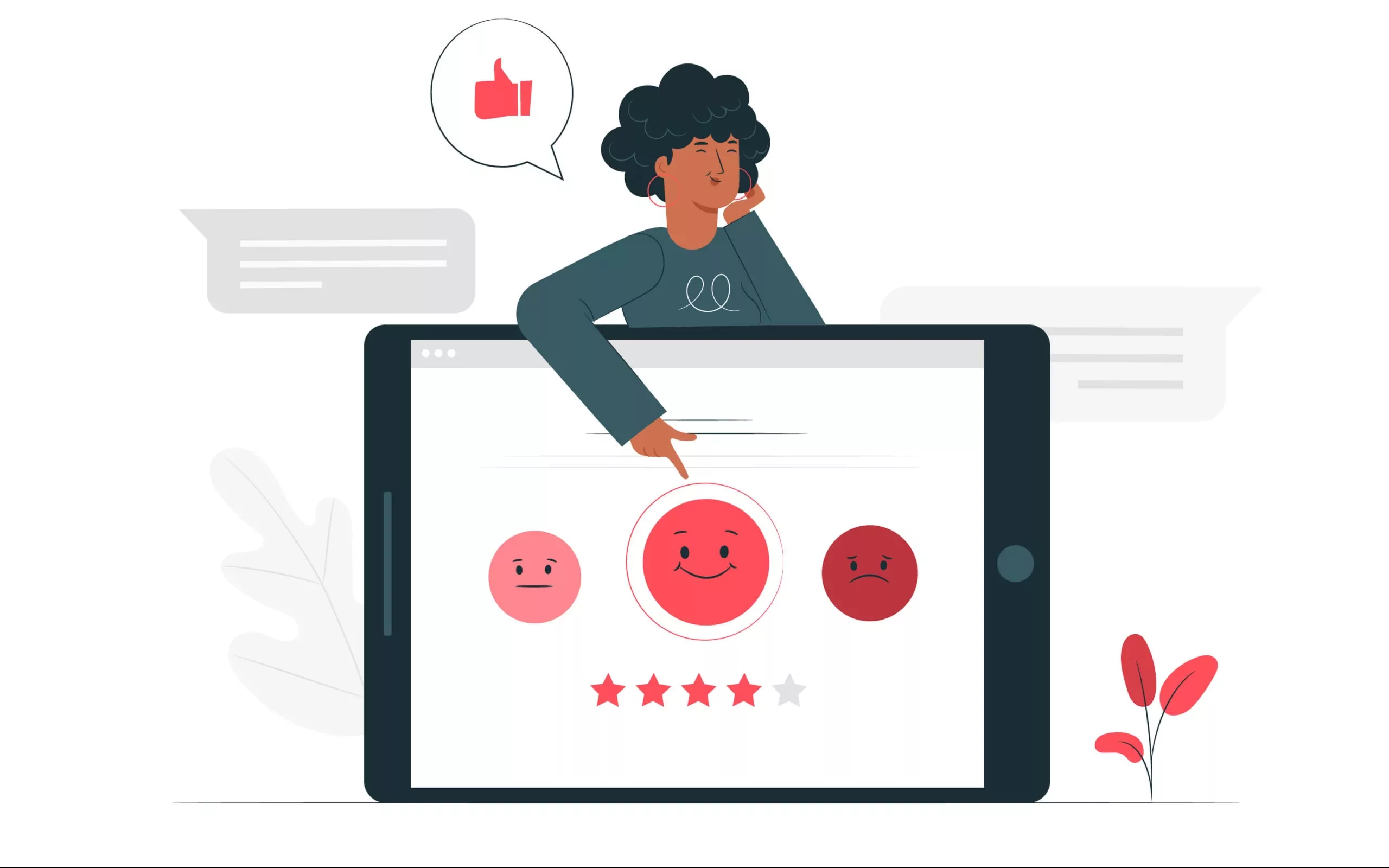Customer retention is a vital aspect of any successful business strategy. Retaining existing customers not only ensures a steady revenue stream but also leads to increased brand loyalty, positive word-of-mouth referrals, and a competitive advantage. Studies show that improving customer retention rates by as little as 5% can boost profits by 25% to 95%. This article will explore practical strategies for enhancing customer retention, backed by data and statistics, to help businesses strengthen their customer relationships and drive long-term success.
Personalization
Personalized interactions can significantly influence customer retention. According to a report by Epsilon, 80% of consumers are more likely to do business with a company that offers personalized experiences. Leveraging customer data and preferences allows businesses to tailor communications, offers, and recommendations to meet individual needs. This fosters a deeper emotional connection with customers, enhancing their likelihood to remain loyal to the brand.
Collect Feedback
Regularly seeking customer feedback is crucial for maintaining high customer retention rates. A study by Microsoft found that 77% of customers have a more favorable view of brands that ask for and act on customer feedback. Gathering insights from customers helps identify pain points, areas for improvement, and potential issues that might impact their loyalty. Addressing these concerns promptly demonstrates a commitment to customer satisfaction and enhances retention.
Consistent Communication
Staying connected with customers through consistent communication is essential. According to a study by MarketingSherpa, 91% of consumers want to receive promotional emails from companies they do business with. Utilize email newsletters, social media, and personalized updates to inform customers about new products, special offers, and relevant information. Consistent communication helps keep your brand on mind, increasing the chances of repeat business.
Customer Success Programs
For B2B businesses, implementing customer success programs is crucial for customer retention. A study by Deloitte revealed that companies with a strong focus on customer success achieve a 91% customer retention rate. By proactively guiding customers to achieve their goals with your product or service, you can ensure their continued satisfaction and loyalty.
Reward Loyalty
Implementing customer loyalty programs can be a powerful tool for customer retention. The 2021 Bond Loyalty Report revealed that 62% of consumers modify their purchasing behaviour to maximise loyalty program benefits. Rewarding customers for continued support and purchases can increase their engagement and encourage repeat business. Businesses can cultivate stronger, lasting relationships with their clientele by offering exclusive discounts, points, or personalized perks.
Surprise and Delight
Going the extra mile to surprise and delight customers can leave a lasting positive impression. A McKinsey report revealed that customers with the best past experiences spend 140% more than those with poor experiences. Occasional personalized thank-you notes, birthday discounts, or small gifts can create emotional connections that strengthen customer loyalty.
Easy Onboarding and User Training


A smooth onboarding process and proper user training are essential for customer retention. The ChurnZero 2021 Customer Retention Benchmark Report found that 67% of customer churn occurs within the first 90 days of product use. Ensuring new customers understand how to use your product or service optimally increases their chances of becoming loyal, long-term customers.
Monitor Churn Indicators
Monitoring churn indicators is crucial to identifying and mitigating retention risks. The Cost of Churn 2021 Report stated that businesses lose $1.6 trillion annually due to churn. You can proactively address issues and prevent customer attrition by keeping a close eye on declining engagement, usage patterns, or customer feedback.
Continuous Improvement


To sustain high customer retention rates, businesses must focus on continuous improvement. Analyzing customer data, gathering feedback, and staying updated with market trends can lead to iterative enhancements of products, services, and customer experiences. This commitment to improvement showcases dedication to meeting customer needs and fosters loyalty.
Customer retention is the lifeblood of a successful business. By providing excellent customer service, personalizing interactions, implementing loyalty programs, collecting feedback, and fostering strong customer relationships, companies can improve customer retention rates significantly.
Excellent Customer Service
Exceptional customer service plays a pivotal role in customer retention. According to a study conducted by American Express, 68% of customers are willing to pay more for products and services if they receive excellent customer service. Providing prompt, courteous, and knowledgeable support is essential to address customer inquiries and concerns efficiently. A positive customer service experience can significantly impact brand perception and foster customer loyalty.
Case Studies from Real Life


Case Study 1: Amazon Prime – Loyalty Program Success
Amazon Prime is one of the most successful customer retention strategies in the e-commerce industry. The loyalty program offers members various benefits, including free two-day shipping, access to exclusive deals, streaming services, and more. The primary objective of Amazon Prime was to increase customer loyalty and encourage repeat purchases.
According to a study by Consumer Intelligence Research Partners (CIRP), as of 2021, Amazon Prime had over 200 million members in the United States alone. The research found that Prime members spend an average of $1,400 per year on Amazon, while non-Prime members spend only around $600 per year.
The success of Amazon Prime lies in its ability to reward customer loyalty and create a sense of exclusivity. By providing valuable benefits that align with customers’ needs and preferences.
Amazon has effectively increased customer retention rates. The program’s success has also contributed to Amazon’s dominance in the e-commerce market, solidifying its position as the go-to platform for online shopping.
Case Study 2: Starbucks – Personalization and Customer Experience
Starbucks, the global coffeehouse chain, has excelled in customer retention through personalized experiences and customer-centric initiatives. The company’s mobile app and rewards program, Starbucks Rewards, have played a crucial role in enhancing customer loyalty.
Starbucks Rewards allows customers to earn points for each purchase, leading to free drinks and other benefits. However, the real strength of the program lies in its personalized approach. The app tracks customers’ preferences, past purchases, and locations to offer personalized recommendations and exclusive offers tailored to individual tastes.
According to a study by Bond Brand Loyalty, Starbucks Rewards members spend three times more than non-members, indicating a significant impact on customer retention and revenue. Additionally, the app’s seamless user experience, mobile ordering, and pickup options have enhanced customer convenience and satisfaction.
Starbucks’ focus on creating a personalized and delightful customer experience has resulted in strong brand loyalty and increased customer retention rates. By leveraging data to understand and cater to individual preferences, Starbucks has maintained its position as ne of the leading coffee chains worldwide.
Case Study 3: Salesforce – Customer Success Programs
Salesforce, a renowned provider of Customer Relationship Management (CRM) software, has achieved impressive customer retention rates through its customer success programs. Salesforce is known for its commitment to guiding customers through their journey of adopting and maximizing the use of their software.
Salesforce’s customer success managers work closely with clients to understand their specific business needs and goals. By providing personalized guidance and support, Salesforce ensures that customers gain maximum value from their CRM investment. This hands-on approach has led to high customer satisfaction and retention.
According to a case study by Nucleus Research, companies using Salesforce CRM experienced an average ROI of $8.71 for every dollar spent on the platform. This strong return on investment and focus on customer success contribute to Salesforce’s impressive customer retention rate, as clients are more likely to continue using the platform for the long term.
What is the Role of Emotional Intelligence in Customer Retention?


Emotional intelligence (EI) refers to the ability to recognize, understand, and manage one’s emotions and empathize with the emotions of others. In the context of customer service, emotional intelligence plays a pivotal role in creating positive customer experiences and building long-term customer loyalty.
Customer service representatives who possess high emotional intelligence can connect with customers on a deeper level, effectively address their needs, and leave a lasting positive impression.
Emotional intelligence is a critical component of successful customer service. Customer service representatives with high emotional intelligence can connect with customers emotionally, understand their needs, and provide empathetic support. Let’s see how emotional intelligence influences customer service and its impact on customer experiences and loyalty.
Empathy and Understanding
Customer service representatives with high emotional intelligence can empathize with customers’ feelings, concerns, and frustrations. They actively listen to customers, validating their emotions, and showing genuine understanding. When customers feel heard and understood and there is a proper communication. They are more likely to have a positive perception of the company, even if the initial issue isn’t immediately resolved.
De-escalating Difficult Situations
Emotionally intelligent customer service representatives excel in de-escalating tense or difficult situations. They remain calm and composed, even in the face of customer anger or frustration. By responding with empathy and a sincere desire to help, they can defuse conflicts and turn negative interactions into opportunities to build trust and loyalty.
Personalization and Tailoring Responses


Emotionally intelligent customer service representatives can adapt their communication style to match the customer’s emotional state and preferences. They tailor responses based on individual needs, ensuring that customers feel valued as unique individuals rather than just another ticket or case.
Building Trust and Rapport
Customers are more likely to trust and remain loyal to a company when they have positive interactions with emotionally intelligent representatives. Building rapport through empathetic and caring interactions fosters a sense of trust, which is crucial for long-term customer loyalty.
Handling Customer Feedback


Emotionally intelligent customer service representatives welcome feedback, even if it includes criticism. Instead of becoming defensive, they view feedback as an opportunity to learn and improve. Responding constructively to feedback can leave customers feeling heard and valued, increasing the likelihood of continued patronage.
Going Above and Beyond
Representatives with high emotional intelligence are more likely to go above and beyond to meet customer needs. They take the initiative to exceed expectations, surprise customers with personalized gestures, and provide proactive solutions. Such actions leave a lasting positive impression on customers, enhancing brand loyalty.
Creating Memorable Experiences
Emotionally intelligent customer service representatives focus on creating memorable experiences for customers. They understand that customer interactions are not just about solving problems but also about leaving a positive emotional impact. Memorable experiences are more likely to be shared through word-of-mouth, contributing to customer retention and new customer acquisition.
Employee Satisfaction and Retention


Emotional intelligence is not only beneficial for customer interactions but also for employee satisfaction and retention. When employees feel valued and supported, they are more likely to be engaged and motivated in their roles, leading to better customer service outcomes.
By creating positive customer experiences, emotionally intelligent representatives foster trust, loyalty, and a positive brand image. Investing in emotional intelligence training for customer service teams can profoundly impact customer retention, satisfaction, and the overall success of a business.
Conclusion
These case studies highlight the importance of customer retention strategies in real-world scenarios. Companies like Amazon, Starbucks, and Salesforce have leveraged different approaches. Such as loyalty programs, personalization, and customer success initiatives.
To enhance customer retention and drive business growth. By implementing these proven strategies, businesses can strengthen their relationships with customers, increase loyalty, and ultimately achieve long-term success in today’s competitive market.











